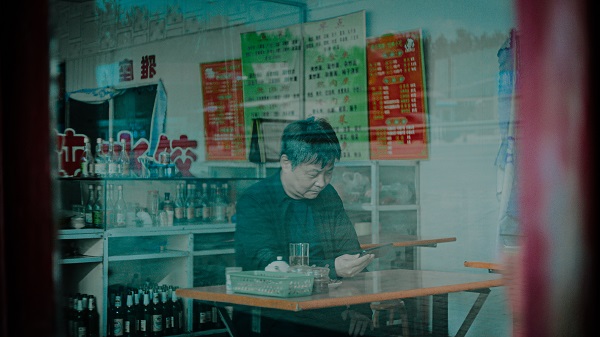Jia Zhangke’s documentary Swimming Out Till The Sea Turns Blue takes a while to get to what it’s really about. It starts out with children reciting patriotic phases. But there’s a slight sense of fun here when viewers connect those first sounds to its eventual premise. That premise, subjectively, has Jia introducing us to China’s great modern authors. He does so either through their children or through the writers themselves. In doing so, he, for the most part, successfully gives us a crash course in modern Chinese literature. It also shows version of the history between the Sino-Japanese War to the Jiang Zemin era. There’s something interesting in hearing and seeing these interviews.
In their way, these interviews capture the sense of discovery and hardship of people stumbling into their calling. The film swings back and forth. Sometimes it casually shows the citizens of Jia family village (no relation) in Shanxi to Xi’an city in Shaanxi. All these people have different levels of awareness as to how these writers have shaped their lives. And then it returns to following these writers and their children and sitting down with them again. Each interview brings, obviously, different insights into these writers’ lives. There’s a slight joy when Ma Feng’s daughter recounts her father’s stories. One involve his discovery a literary scene across the Yellow River during the Sino-Japanese War.
Then, the pendulum swings as it follows Jia Pingwa. He thrives and has a small but loving following despite the People’s Republic branding his father as a counter revolutionary. Time is relative. These writers lived and still live in what some consider a blip in Chinese history, although it might be the most volatile of blips. These interviews are great, especially that of Yu Hua who talks about his brief stint in dentistry. And he seamlessly connects that with his uphill battle in becoming a writer at the end of the Cultural Revolution.
There’s something slightly bothersome about how Jia shoots these interviews though. He switches from medium shots to long and never lets his subjects look the camera in the eye. And this is a genre where it’s totally ok to do that. This, obviously, provides a distance between the subject and viewer, which is another hurdle for this film about a niche subject. I’ve already also written about the digressive quality of this long film’s first two of eighteen chapters. There’s also something propagandistic about them.
But there’s a lot to unpack after it gets over those slightly disturbing chapters. It makes relatable figures out of its subjects and brings out unique qualities within them. These interviews bring out, say, the candor and, sometimes, humor in people like Ma Feng’s daughter and Jia Pingwa. The film’s last writer, Liang Hong, is the exact opposite in the best ways. We can politicize her struggle and reluctance to talk about her sister and mother. But her stories, along with the many we see through the film, are personal enough to relate to viewers outside China.
The film ends with Yu Hua telling a story that ended up being the documentary’s title. I feel like that story is about two truths – the one in front of us and the one our culture promises to us. Swimming is like writing, as cheesy as that sounds. Writing shapes the way we see things, whether that thing we see is imperfect or utopic. And there’s a hope that these writers are doing good in either swimming in yellow waters or in blue ones. I write this interpretation in the hope that someone’s reading. That some has their own way of seeing what this story and many others mean.
Rent Swimming Till The Sea Turns Blue at digital TIFF Bell Lightbox. The film starts its run at December 11. Find out how to rent this movie at digital.tiff.net.
- Release Date: 12/11/2020


